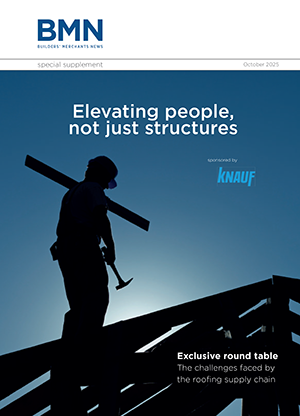UK: Immediate business reaction to the Chancellor's budget announced yesterday has been one of cautious welcome. The budget is viewed as business-friendly but also huge gamble relying on massive private sector growth to counter the effect of spending cuts including a £100bn capital investment cut taking capital spending, to 1.25% of GDP. Here's our round-up of what business leaders said.
Edward Naylor, chief exectutive, Naylor Industries
"My overall response is one of relief – I think the Chancellor did a good job of managing expectations – he prepared us for the worst and then announced something slightly less bad than the untold misery we had been led to expect.
"I was particularly relieved that there was no cull of capital projects over and above that which had previously been announced. Yes, it's not great news that Government Capital Expenditure is set to fall from £68.7bn in 2009/10 to £44.9bn in 2014/15 but provided the banks resume normalised lending and private development gets moving, we should avoid the worst.
"I'm not unduly concerned about the increase in VAT – I never understood why Alistair Darling reduced it a couple of years ago."
Cecily Davis, construction partner, DLA Piper
"The construction sector can, at least for now, breath a sigh of relief after today's Emergency Budget confirmed the Government's commitment not to reduce capital spending and support for business recovery.
"Several key transport and other infrastructure schemes have been singled out for continued funding in addition to the creation of a large Regional Growth Fund to provide finance for regional capital projects over the next two years. This potentially will lead to growth in one of the hardest hit areas of the UK economy from the down turn. We readily expect the Comprehensive Spending Review later this year to unleash more detail."
Michael Coogan, director general, Council of Mortgage Lenders
"In housing terms this may be the "age of aspiration" as the housing minister said recently, but against an austere backdrop there is a long way to go before the supply of housing, or the ability of would-be home-owners to achieve their aspiration, are likely to show any significant pickup."
Liz Peace, chief executive, The British Property Federation
"A rise in VAT was expected in the budget and will have a natural impact on consumers’ willingness to purchase goods on which VAT is charged. This is not good news for retailers, and by extension landlords of retail property. With 12.6% of shops standing empty, we could see more damage done to the high street.
"However, we are pleased to see the rise delayed until 4 January as this provides a reasonable window in which consumers are can purchase big ticket items; it will provide retailers with enough time to get their houses in order ahead of the rise and, perhaps more importantly, it reduces the chances of an immediate slump in consumer confidence.
It remains to be seen how exactly a reformed Climate Change Levy would be used to shore up the price of carbon, which has been subject to instability particularly at the EU Emissions Trading System level. Though we are generally supportive of fiscal instruments which are directed toward the end user of energy, the Government will need to take great care not to artificially stimulate the price of carbon to unsustainable levels in the advent of the first auction of carbon allowances under the CRCEES in 2013.
James Knightley, UK economist, ING
"Our big concern is that "efficiency savings" being so heavily emphasised implies unemployment is likely to remain high for a prolonged period with any improvements in private sector employment more than offset by job losses in the public sector. Indeed, the Chartered Institute of Personal Development is warning of up to 725,000 public sector job losses resulting from fiscal austerity. During the last period of significant fiscal austerity in the 1990s, even more jobs were lost, but these were fully absorbed by a vibrant private sector. That is clearly not the case this time so the prospect of 3 million total unemployed in the UK is still a risk, which has the potential to feed back and further depress activity.
Richard Lambert, director-general, CBI,
"There was clear recognition in the budget of the role that business needs to play in getting the economy back into shape, and generating the jobs and wealth needed to sustain economic recovery. The chancellor has sensibly taken measures to secure public support by offering extra help to cushion the impact on low-income families.
This budget is the UK's first important step on the long journey back to economic health. The autumn spending review, and the re-engineering of public services, will be equally challenging."
Terry Scuoler, chief executive of EEF
"In recent weeks, manufacturers had been encouraged by strong commitments from the prime minister and the chancellor on the role of manufacturing in a better balanced economy. They will now be left wondering where the necessary growth and investment will come from, given the cuts to investment allowances and capital budgets."
John Walker, national chairman of the Federation of Small Businesses
"The measures announced in the emergency budget will go a long way to reducing the deficit and will please the 93% of FSB members who called for a clear plan on tackling the country's debt. The increase in VAT to 20% will however, hurt small firms who will have to pass the increase on to their customers, unlike big business which can absorb the cost. "






